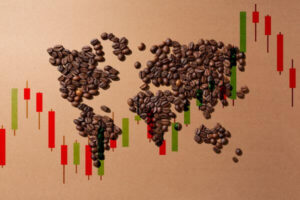The coffee market is a dynamic and ever-evolving landscape, influenced by various factors that shape its dynamics. From shifting consumer preferences to global economic trends, understanding the dynamics of the coffee market is essential for coffee producers, retailers, and consumers alike.
In this article, we will embark on a journey through the caffeinated chronicles, exploring the key elements that drive the coffee market and analyzing the trends that shape its present and future.
Global Coffee Consumption Patterns: Unveiling the World’s Coffee Habits
Exploring the patterns of coffee consumption on a global scale, we delve into the fascinating diversity of coffee habits across different countries and regions. From the espresso-loving Italians to the coffee-to-go culture in the United States, we uncover the cultural, social, and economic factors that influence the coffee consumption patterns worldwide.
Understanding these consumption patterns provides valuable insights into the preferences and behaviors of coffee drinkers, shaping the strategies of coffee producers and retailers to cater to the unique demands of each market.
Whether it’s a traditional coffee ceremony in Ethiopia or the growing popularity of specialty coffee in Scandinavia, the global coffee consumption patterns showcase the rich tapestry of coffee culture around the world.
Specialty Coffee Market Expansion: Capturing the Palates of Discerning Coffee Enthusiasts
The specialty coffee market has witnessed remarkable growth in recent years, captivating the hearts and taste buds of discerning coffee enthusiasts. This expansion is driven by a growing demand for unique flavors, exceptional quality, and a more immersive coffee experience.
Specialty coffee, characterized by its meticulously sourced beans, precise roasting techniques, and expert brewing methods, has become a symbol of craftsmanship and artistry in the coffee industry.
As consumers increasingly seek to savor the nuances and complexities of their coffee, the specialty coffee market continues to expand, offering a diverse range of origin-specific beans, rare blends, and specialty brews that elevate the coffee experience to new heights.
Emerging Markets and Changing Demographics: Redefining the Coffee Landscape
The coffee industry is experiencing a shift in both emerging markets and changing demographics, redefining the landscape of coffee consumption. As developing countries embrace coffee culture, a wave of new markets is emerging, introducing coffee to a broader audience and fueling the industry’s growth. Additionally, changing demographics, particularly the preferences of millennial and Gen Z consumers, are influencing the coffee market by demanding sustainable practices, unique flavors, and a more personalized coffee experience.
This combination of emerging markets and evolving demographics is reshaping the coffee landscape, driving innovation and diversification within the industry. The rise of emerging markets and the changing demographics of coffee consumers present opportunities and challenges for coffee producers and retailers. Companies must adapt their strategies to cater to the specific tastes, preferences, and values of these new markets and demographic segments.
Embracing sustainability, offering a wider range of flavor profiles, and leveraging technology to engage with younger generations are some key strategies that industry players are adopting to thrive in this evolving coffee landscape. As emerging markets continue to grow and demographics continue to shift, the coffee industry must remain agile and responsive to meet the ever-changing demands of an increasingly diverse consumer base.
Impact of Climate Change on Coffee Production: Navigating the Challenges Ahead
Climate change poses significant challenges to the coffee industry, impacting coffee production across the globe. Rising temperatures, unpredictable weather patterns, and increased occurrences of pests and diseases are affecting coffee-growing regions. These changes threaten the viability of coffee farms, decrease crop yields, and compromise the quality of coffee beans.
As the effects of climate change become more pronounced, the industry is compelled to take proactive measures to mitigate its impact, including implementing sustainable farming practices, developing climate-resilient coffee varieties, and supporting farmers in adapting to the changing conditions. The impact of climate change on coffee production extends beyond the immediate concerns of farmers. It also has wider implications for coffee supply chains, global coffee prices, and the overall availability of coffee.
As a result, stakeholders in the coffee industry, including growers, exporters, roasters, and consumers, must work collaboratively to address the challenges posed by climate change. By promoting sustainability, supporting research and innovation, and fostering resilience within the industry, the coffee sector can navigate the complexities of climate change and ensure the long-term sustainability of coffee production for future generations.
Innovation in Coffee Brewing Technologies: Revolutionizing the Coffee Experience
The coffee industry is undergoing a revolution in brewing technologies, driving a new era of precision and customization in the coffee experience. From advanced espresso machines to pour-over systems, innovative brewing technologies are empowering baristas and coffee enthusiasts to achieve unparalleled control over extraction, temperature, and brewing parameters.
These advancements ensure consistent and optimized brews, allowing for the exploration of diverse flavor profiles and enhancing the overall quality of coffee beverages. With the integration of cutting-edge technologies, such as automation, connectivity, and data analytics, coffee brewing is being elevated to a science and an art form.
Smart coffee machines and brewing equipment enable precise calibration, automated recipes, and real-time monitoring, providing a level of consistency and accuracy that was once unimaginable. This fusion of innovation and craftsmanship is pushing the boundaries of what is possible in the world of coffee, opening up new avenues for creativity and expanding the horizons of the coffee industry.
E-commerce and the Digital Coffee Market: Redefining Coffee Retail
The rise of e-commerce has reshaped the coffee industry, propelling the growth of the digital coffee market. Online platforms and specialized coffee retailers have revolutionized the way consumers purchase coffee, offering a convenient and personalized shopping experience.
From coffee subscriptions to direct-to-consumer models, e-commerce has made it easier than ever for coffee lovers to access a wide variety of coffee beans, equipment, and accessories, all from the comfort of their homes. The digital coffee market is not only transforming the retail aspect of the industry but also fostering a sense of community and exploration. Online forums, social media platforms, and coffee-related content have connected coffee enthusiasts worldwide, allowing them to share brewing techniques, flavor profiles, and recommendations.
Furthermore, digital marketing strategies and targeted campaigns have enabled coffee brands to reach new audiences and build strong relationships with consumers. As the digital coffee market continues to evolve, it presents exciting opportunities for both established coffee companies and emerging players to thrive in this interconnected world of coffee retail.
Sustainable Practices and Ethical Sourcing: Forging a Responsible Coffee Industry
The coffee industry is increasingly embracing sustainable practices and ethical sourcing as crucial pillars of its operations. Recognizing the importance of environmental stewardship and social responsibility, coffee producers and retailers are actively implementing measures to minimize their carbon footprint, promote biodiversity, and support the well-being of coffee farming communities.
This commitment to sustainability is reflected in certifications such as Fair Trade and Rainforest Alliance, which ensure fair wages, safe working conditions, and environmental sustainability throughout the coffee supply chain. Ethical sourcing has also become a focal point in the coffee industry, with efforts focused on establishing direct relationships with farmers, supporting their livelihoods, and promoting transparency.
By prioritizing ethical sourcing practices, the industry aims to create a positive impact on the lives of coffee farmers and their communities, while also satisfying the growing consumer demand for responsibly sourced products. As sustainability and ethical considerations continue to gain prominence, the coffee industry is taking significant strides towards building a more responsible and equitable future.
The Rise of Coffee Innovations and Trends: Redefining the Coffee Experience
Coffee is witnessing a wave of innovations and trends that are reshaping the way we enjoy our favorite brew. From alternative brewing methods like cold brew and nitro coffee to flavor infusions and creative latte art, the coffee industry is constantly pushing boundaries and delighting consumers with exciting new experiences.
These innovations not only enhance the taste and presentation of coffee but also elevate it to an art form, showcasing the ingenuity and creativity of baristas and coffee enthusiasts worldwide. In addition to brewing techniques, the coffee industry is also witnessing trends in flavor profiles and ingredients.
From unique flavor combinations and innovative blends to the incorporation of functional ingredients like CBD and adaptogens, coffee has become a canvas for experimentation and flavor exploration. These trends reflect evolving consumer preferences and a desire for diverse and personalized coffee experiences. As coffee continues to evolve, the rise of innovations and trends promises a future filled with endless possibilities for coffee lovers to explore and savor.
Conclusion
The caffeinated chronicles have shed light on the intricate dynamics of the coffee market, revealing the multifaceted factors that drive its success and shape its future. From the expansion of specialty coffee and the influence of emerging markets to the impact of climate change and the innovations in brewing technologies, the coffee industry continues to evolve and adapt to meet the changing needs and preferences of consumers.
As coffee enthusiasts, industry professionals, and consumers, we can embrace these dynamics and embark on a journey of discovery, savoring the diverse flavors and experiences that the coffee market has to offer.




